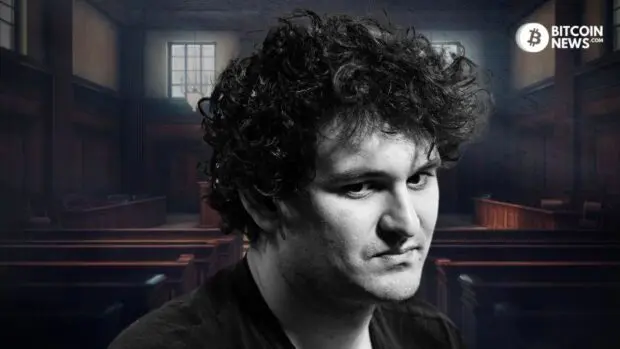In a highly anticipated turn of events, FTX co-founder Sam Bankman-Fried (SBF) took the witness stand during his ongoing high-profile trial, shedding light on his perspectives, decision-making, and cryptocurrency knowledge. Notably, Day 14 has been a focal point for both legal professionals and the digital asset community.
SBF Denies Allegations, Points Finger at Ellison
On October 28, during his testimony before the jury in Manhattan federal court, SBF predictably pointed fingers at his ex-girlfriend and Alameda CEO, Caroline Ellison, for billions of dollars of funds missing from the balance sheet, and the mishandling of loans and credit. While acknowledging some mistakes on his part, he denied various allegations made by former colleagues during the trial.
SBF stated that he was “alarmed” by the level of risk the trading firm Alameda Research was undertaking, despite his role as the firm’s co-founder. He claimed he learned about the $8 billion hole in the finances of his trading firm FTX, in mid-2022.
Later that year, in November 2022, FTX made a public announcement on Twitter revealing the resignation of its CEO, Bankman-Fried, and the appointment of his predecessor, John J. Ray III, alongside the company’s declaration of bankruptcy.
During cross examination, prosecutor Daniel Sassoon allege that Bankman-Fried moved FTX customer funds from FTX to Alameda Research, loaning it to himself and colleagues, working in the ways of an unlimited line of credit. They have charged him with seven crimes, including fraud and conspiracy.
According to Bankman-Fried’s testimony, in June 2022, Caroline Ellison, then co-CEO of Alameda, “nervously” raised concerns about the firm’s potential bankruptcy to him and FTX executives Gary Wang and Nishad Singh. He stated:
“I was very surprised and fairly concerned. I had not expected that Alameda would be bankrupt.”
When defense attorney Mark Cohen questioned Bankman-Fried about his level of worry, he responded:
“I don’t tend to show a lot of freak-out-ness, but relative to my standard, yes.”
Interestingly, his demeanor in court did not mirror his professed concern, raising eyebrows among trial observers and causing some to question the sincerity of his claims.
Poor Risk Management
Bankman-Fried’s trial testimony included a candid admission of his limited knowledge in the digital asset space. Notably, SBF admitted managerial errors, acknowledging that the absence of a dedicated risk management team was the most significant oversight.
The defense aimed to portray him as an overwhelmed math expert who made honest mistakes, seeking to diminish claims of criminal masterminding.
Interestingly, the FTX co-founder’s trial began with a setback as the judge ruled certain details inadmissible. SBF claimed that he relied on his legal team’s guidance for personal loans, stating that his in-house legal team oversaw paperwork for “hundreds of millions of dollars in personal loans to himself and other founders of the platform.”
If the trial ends with Bankman-Fried being convicted, Judge Kaplan will issue sentences for both the FTX co-founder and the witnesses cooperating with the prosecution. Witnesses Gary Wang, Caroline Ellison, and Nishad Singh anticipate reduced sentences in exchange for their cooperation, hoping to avoid incarceration. According to Reuters, Bankman-Fried, if found guilty, faces a maximum potential sentence of 110 years in prison.










